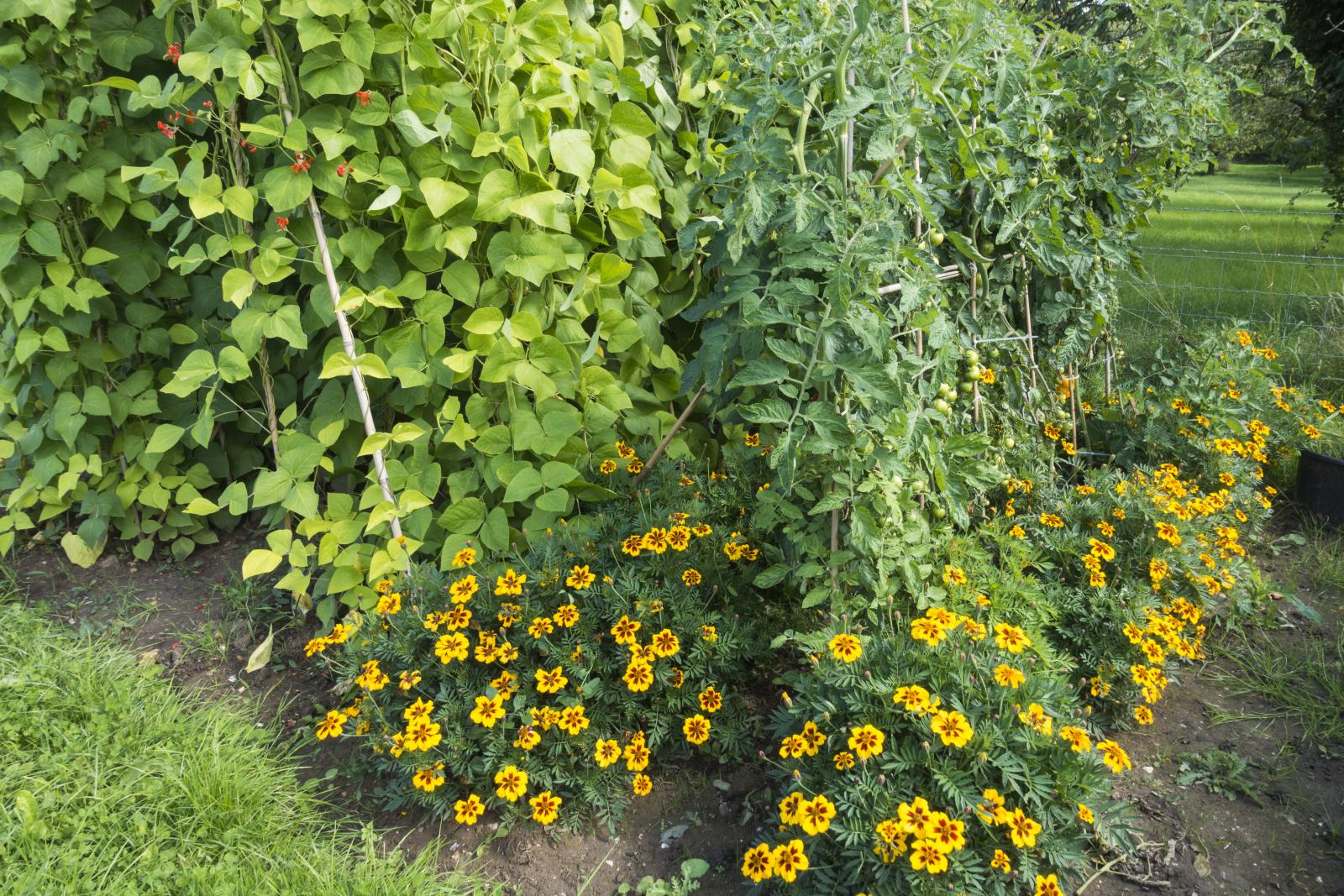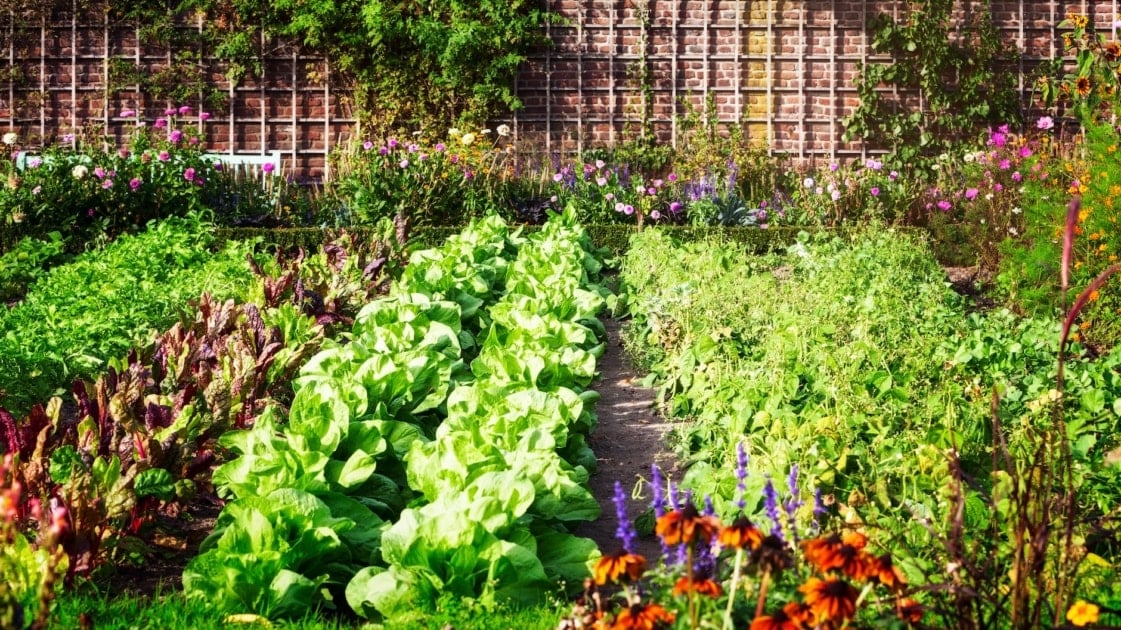Summer Savory Companion Plants: The Herb That Makes Everything Better
Summer Savory Companion Plants: The Herb That Makes Everything Better
Summer savory is a versatile herb that can be used in a variety of dishes, from soups and stews to grilled meats and vegetables. It has a strong, savory flavor that can add depth and complexity to any meal. But did you know that summer savory can also be used as a companion plant?
Companion planting is the practice of planting certain plants together in order to benefit each other. Some plants can help to repel pests, attract beneficial insects, or improve the overall health of the soil. Summer savory is a great companion plant for a number of different vegetables and herbs.
In this blog post, we will discuss the benefits of companion planting with summer savory and some of the best plants to grow alongside it. We will also provide some tips on how to plant and care for summer savory in your garden.
Benefits of Companion Planting with Summer Savory
There are many benefits to companion planting with summer savory. Here are a few of the most important:
- Improved flavor: Summer savory can help to improve the flavor of other plants in the garden. When planted near beans, for example, summer savory can help to reduce the bitterness of the beans.
- Repels pests: Summer savory has a strong scent that can help to repel pests, such as cabbage moths, aphids, and spider mites.
- Attracts beneficial insects: Summer savory also attracts beneficial insects, such as ladybugs and hoverflies. These insects help to control pests in the garden, which can save you time and money on pesticides.
- Improves soil health: Summer savory can help to improve the overall health of the soil. It is a nitrogen-fixing plant, which means that it can help to add nitrogen to the soil. This can benefit other plants in the garden and help to improve their growth.
Best Companion Plants for Summer Savory
There are many different plants that can be grown alongside summer savory. Here are a few of the best:
- Beans: Summer savory and beans are a classic companion plant combination. Summer savory can help to reduce the bitterness of beans, and beans can help to improve the nitrogen levels in the soil.
- Onions: Summer savory and onions are another great companion plant combination. Onions can help to repel pests, such as cabbage moths and aphids, and summer savory can help to improve the flavor of onions.
- Garlic: Summer savory and garlic are also good companion plants. Garlic can help to repel pests, such as spider mites, and summer savory can help to improve the flavor of garlic.
- Tomatoes: Summer savory and tomatoes are a good companion plant combination. Summer savory can help to repel pests, such as whiteflies, and tomatoes can help to improve the flavor of summer savory.
- Melons: Summer savory and melons are also a good companion plant combination. Summer savory can help to repel pests, such as cucumber beetles, and melons can help to improve the flavor of summer savory.
How to Plant and Care for Summer Savory
Summer savory is a relatively easy herb to grow. It can be planted from seed or from seedlings. If you are planting from seed, sow the seeds about 1/2 inch deep in the soil. Summer savory prefers full sun and well-drained soil. It should be watered regularly, but not too much.
Summer savory will start to flower in the summer. The flowers are edible and can be used in salads or as a garnish. The leaves of summer savory can be harvested throughout the growing season. To harvest the leaves, simply snip them off with a pair of scissors.
Conclusion
Summer savory is a versatile herb that can be used in a variety of dishes. It is also a great companion plant for a number of different vegetables and herbs. If you are looking for an herb that can add flavor, deter pests, and improve the overall health of your garden, then summer savory is a great choice.
Summer savory is a delicious and versatile herb that can be used in a variety of dishes. It is also a great companion plant, meaning that it can benefit other plants in the garden. Some good companion plants for summer savory include beans, melons, onions, garlic, and tomatoes. These plants help each other in a variety of ways, such as by attracting beneficial insects, repelling pests, and improving soil quality.
If you are interested in learning more about summer savory companion plants, I recommend visiting Garden Wiki. This website has a wealth of information on the topic, including a list of specific plants that are good companions for summer savory. You can also find tips on how to plant and care for summer savory, as well as recipes that feature this delicious herb.
FAQ of summer savory companion plants
Q: What are the best companion plants for summer savory?
A: Summer savory is a versatile herb that can be planted alongside a variety of other plants. Some of its best companion plants include:
- Onions: Onions help to repel pests, such as aphids and carrot flies.
- Beans: Beans fix nitrogen in the soil, which benefits summer savory.
- Carrots: Carrots and summer savory both repel pests, and they also help to improve the flavor of each other.
- Cucumbers: Cucumbers and summer savory both attract beneficial insects, such as ladybugs.
- Spinach: Spinach and summer savory both thrive in full sun, and they help to deter pests.
Q: What plants should I avoid planting near summer savory?
A: There are a few plants that you should avoid planting near summer savory, as they can compete for resources or attract pests. These plants include:
- Parsley: Parsley and summer savory are both members of the mint family, and they can compete for resources.
- Tomatoes: Tomatoes and summer savory can attract the same pests, such as whiteflies and spider mites.
- Marigolds: Marigolds can deter some pests, but they can also attract others, such as aphids.
Q: What are the benefits of planting summer savory with other plants?
A: There are several benefits to planting summer savory with other plants. These benefits include:
- Increased pest and disease resistance: Summer savory can help to repel pests and diseases, which can benefit the other plants in your garden.
- Improved pollination: Summer savory attracts beneficial insects, such as bees and butterflies, which can help to pollinate other plants in your garden.
- Enhanced flavor: The flavors of summer savory and other plants can complement each other, which can create more flavorful dishes.
Q: How do I plant summer savory with other plants?
A: When planting summer savory with other plants, it is important to consider the size and growth habits of each plant. For example, summer savory is a relatively short plant, so you will want to plant it with taller plants that will not shade it out.
You should also plant summer savory in full sun, as it needs a lot of sunlight to thrive. If you are planting summer savory in a container, make sure that the container is large enough for the plant to spread out.
Image of summer savory companion plants
- Beans: Summer savory can help to repel bean beetles, and it also improves the growth rate and flavor of beans.

- Melon: Summer savory can help to deter cucumber beetles from melons, and it also improves the flavor of melons.

- Onions: Summer savory can help to make onions sweeter, and it also repels aphids and other pests.

- Garlic: Summer savory can help to repel aphids and other pests, and it also improves the flavor of garlic.

- Tomatoes: Summer savory can help to repel aphids, spider mites, and other pests, and it also improves the flavor of tomatoes.

Post a Comment for "Summer Savory Companion Plants: The Herb That Makes Everything Better"